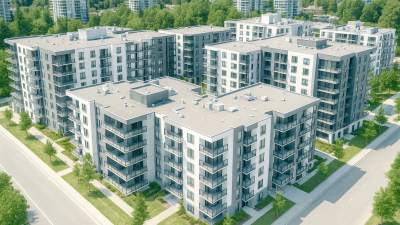As the real estate market shifts from the quiet summer months to a bustling fall, homebuyers in the Lower Mainland are presented with a mixed outlook. The summer of 2024 was characterized by subdued activity, with both homebuyers and investors remaining cautious amid market uncertainties. However, with recent interest rate cuts by the Bank of Canada and the launch of new high-rise projects in key areas, there are signs of positive change.
This fall is expected to offer a favourable environment for homebuyers, with increased inventory and potential policy shifts playing significant roles. Yet, challenges remain, and buyers and investors will need to navigate these carefully as they assess their opportunities in a gradually evolving market.
A Muted – and Competitive – Summer Market
Summer 2024 saw homebuyers and investors largely staying on the sidelines, resulting in a quiet presale market. Same-month absorption rates dipped below 20% for two consecutive months, a low not seen since 2020. Despite steady launch activity, particularly in the Fraser Valley, sales velocities remained sluggish due to broader market hesitancy. However, July saw a slight shift, with absorption rates rising from 16% to 25%, driven by projects in Langley and West Coquitlam.
Developers continued to struggle with sticky costs and stagnant prices, especially in areas like Metrotown and Surrey City Centre. As summer progressed, market activity remained modest due to seasonality and market uncertainty, with new launches delayed. The landscape began to shift with two 0.25% rate cuts by the Bank of Canada, which improved lending conditions and consumer sentiment, creating a more favourable environment for buyers. By August, the market showed signs of renewed interest, with new high-rise projects in Brentwood and other areas adding significant inventory, positioning the fall as a potentially more active period as buyers and developers adjust to the changing conditions.
Forecasting a More Promising Fall
The outlook for fall is cautiously optimistic. Inventory and sales are expected to pick up in October, with approximately 42 new presale projects launching in the second half of 2024, bringing the total for the year to around 110. While this represents a 17% increase from 2023, it remains below the activity levels seen in the more robust years of 2021 and 2022.
Sales are expected to remain slow, with extended sales campaigns becoming the norm. The average same-month absorption rate is expected to hover around 35%, indicating a market that is still finding its footing but showing signs of improvement. The recent interest rate cuts could boost buyer sentiment and affordability. However, a broader recovery is likely to be delayed until late 2025 or 2026, when more substantial rate improvements are projected.
Market Movements to Watch Out For
Several key policy changes and market trends will play a crucial role in shaping the presale homes market this fall.
Bank of Canada Rate Cuts: The recent rate cut on September 4th lowered the policy interest rate to 4.25%. This follows the two earlier cuts in June and July, which have already improved mortgage affordability and increased buyer purchasing power. A further reduction could stimulate more buying activity, particularly among those who have been waiting for more favourable conditions.
Capital Gains Tax Inclusion Rate Increase: The increase in the capital gains tax inclusion rate from 50% to 66.67% that came into effect on June 25th will likely have significant implications for those investing in the real estate market. This tax hike is expected to discourage long-term property owners from selling, complicating land assembly for new developments and reducing options for homebuyers.
Market Shifts Toward Buyers: The Vancouver real estate market has gradually shifted in favour of buyers, with active supply outpacing demand. This trend is expected to continue into the fall, with more presale projects launching and adding to the growing inventory. For buyers, this presents an opportunity to take advantage of stabilizing prices, increased seller flexibility, and significant incentives from developers.
This fall, the presale market is set for cautious but active engagement. Slow sales velocities, extended campaigns, and additional interest rate cuts will likely create a favourable environment for those seeking to purchase a primary home. Those looking to invest in property, while still benefiting from these market factors, will need to consider the impact of the capital gains tax increase before moving forward.
Both types of homebuyers will need to carefully assess the evolving landscape, balancing short-term opportunities with long-term considerations. The remainder of 2024 is likely to set the stage for the broader recovery anticipated in the coming years, making this fall a critical period for all market participants.



